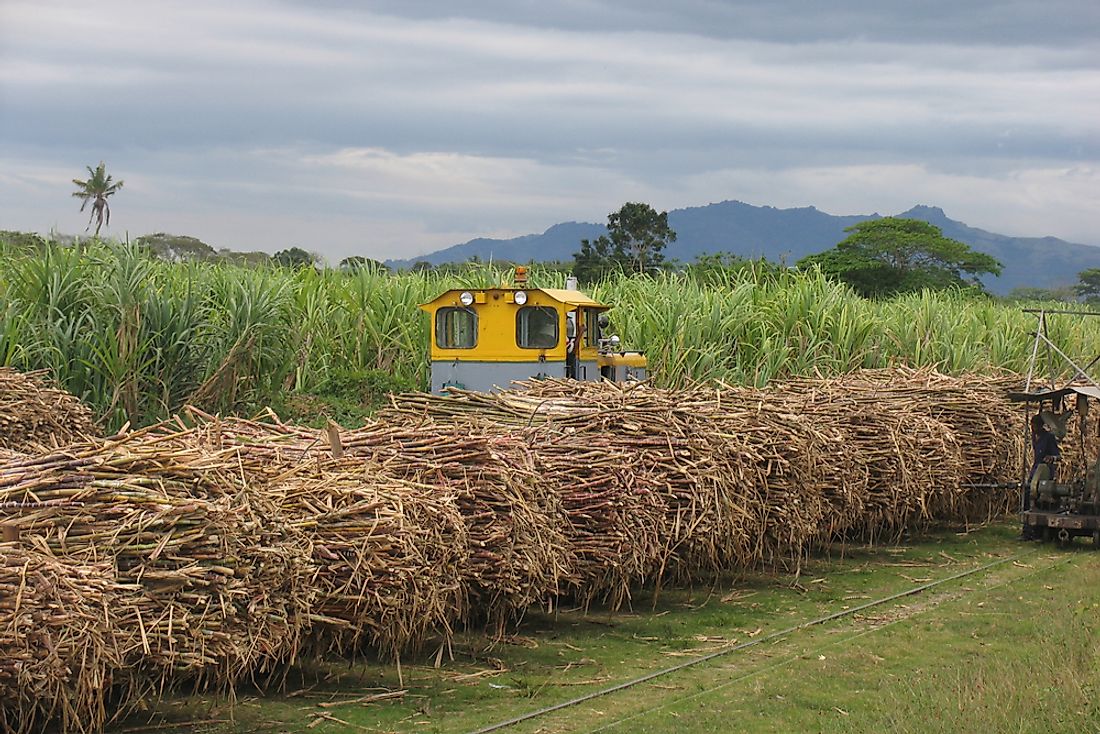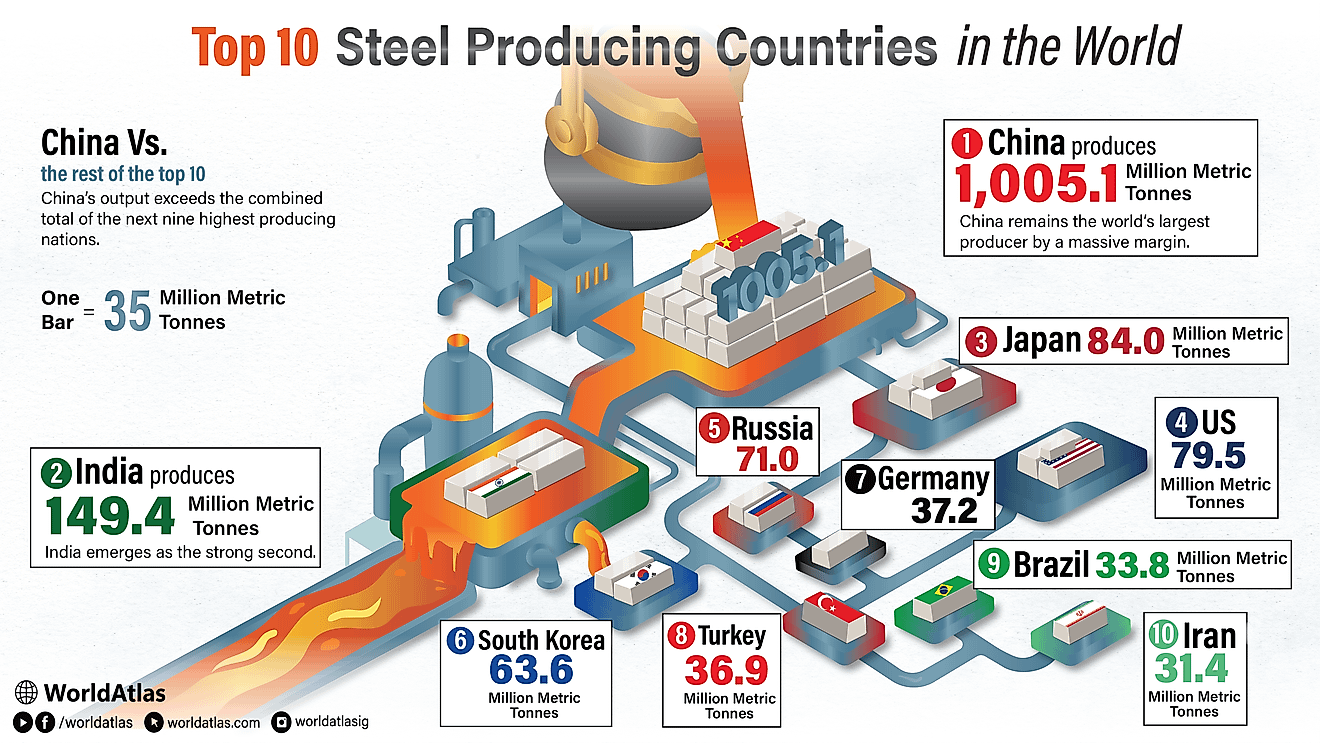What Are The Major Natural Resources Of Fiji?

Fiji is an island nation situated within the southern section of the Pacific Ocean and has one of the best-developed economies within the Oceania region. In 2017, Fiji had the 91st highest per capita GDP as well as the 147th highest GDP. Fiji's economic prosperity can be attributed to several factors such as the government's policies that encourage economic growth and the proper utilization of natural resources. Fiji has been blessed with a wide range of natural resources such as the country's beautiful scenery, arable land, and minerals among others.
Beautiful Scenery
Fiji is often considered one of the world's most scenic nations because it is home to numerous beautiful sites that range from sandy beaches to nature trails. Fiji's islands are among the most popular destinations for tourists and they include the island of Taveuni, which is often referred to as the Garden Island, Mana Island, and Tokoriki. Fiji's scenic sites attract large numbers of tourists, and the sector is one of the most important in the country. Most of the visitors to Fiji came from neighboring countries such as Australia and New Zealand with American and European visitors also making up a significant number of visitors to the nation. Several international corporations have invested in the Fijian tourism industry to take advantage of the large number of tourists who visit the country. Since the late 20th, century, the Fijian tourism industry has been expanding rapidly due to the government's emphasis on improving the sector. Fiji's tourism industry is highly susceptible to changes in the global markets and affects tourism industry in the country.
Arable Land
One of Fiji's most important natural resources is arable land which made up about 9% of the country's territory in 2014 according to data from the World Bank. The data also indicated that since 2006, the amount of arable land in Fiji had been declining at a rapid rate. The reduction in the size of arable land in Fiji can be attributed to the decline in the importance of agriculture to the Fijian economy. In previous years, agriculture was one of the most critical pillars of Fiji's economy, however, due to the diversification of the Fijian economy the importance of agriculture diminished. The Fijian government estimated that the agriculture sector contributed roughly 9% of the country's GDP. The Fijian labor department estimated that 28% of the nation's workforce was formally employed in the agriculture sector. Farmers in Fiji grow a diverse array of crops such as sugarcane, coconuts, and pineapples which are mainly sold locally and some are exported to other nations. The fluctuation of prices for agricultural goods in the global market is one of the significant issues facing Fiji's agriculture sector.
Sugarcane
One of Fiji's most essential crops is sugarcane which contributes approximately 0.9% of the country's GDP. The government of Fiji established the Fiji Sugar Corporation to process the sugarcane produced in the country. The corporation is one of the leading employers in Fiji as estimates indicated it provided direct employment to more than 3,000 people while more than 200,000 people relied on it indirectly. Due to the importance of the sugar industry to the Fijian people, the government has invested heavily in improving the sector mainly through providing subsidies to sugarcane farmers.
Forests
According to World Bank data, forests in Fiji cover roughly 55.68% of the country's entire territory, and most of the forests in the country are classified as native forests. The data also indicated that since 2009, Fiji's forest cover has been increasing which can partially be attributed to strategies put in place by Fiji's government. The government of Fiji has partnered with local communities to conserve the country's forests. Fijian forests are primarily used to produce timber which is sold to other nations such as Australia. To make Fiji's forestry sector more attractive to foreign investors, the government passed a law giving tax incentives to companies that wished to invest in the sector.
Fish
Due to its location within the Pacific Ocean, Fiji has been blessed with large quantities of fish resources. The UN estimated that Fijian fishers caught roughly 36,000 tons of fish every year. Several types of fishing are carried out in Fiji such as subsistence fishing, sports fishing, and commercial fishing. Local Fijian communities are the primary practitioners of subsistence fishing, and the fish they catch are mainly used to supplement the local's diet. Some of the fish most commonly harvested by subsistence fishermen in Fiji include beche de mer and finfish. Most of the subsistence fish farming in Fiji is carried out in lagoons according to report from the UN. Commercial fishing is an essential component of the Fijian economy, and in 1999 the government of Fiji estimated that there were more than 1,000 vessels engaged in commercial fishing in the country. Sports fishers are mainly attracted to Fiji due to the country's large variety of game fish such as blue marlin and monster dogtooth tuna. Several organizations have been established to cater to a large number of sport fishers who visit the country.
Minerals
Fiji has a wide array of minerals that play a vital role in economy of Fiji such as silver, copper, and gold. Fiji's minerals are primarily sold to other nations like Australia and the US. In 2010, the value of Fiji's mineral exports increased by roughly 11% which was mainly attributed to the increase in global mineral prices.
Gold
One of the essential minerals in Fiji is gold which is extracted from some of the mines with the most important one being the Vatukoula gold mine. Fiji's gold is mainly sold to other nations, and the mineral is one of the most valuable exports from the country.
Economic Growth in Fiji
The government of Fiji has invested heavily in the country's economy to improve the lives of ordinary Fijians. The government has encouraged investment from foreign nations to ensure the growth of several vital sectors. The policies that the government of Fiji has put in place have been moderately successful in ensuring that the country's economy grow.











